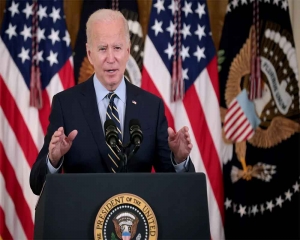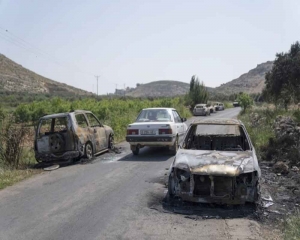G-20 Summit is an excellent opportunity to support rural tourism in Punjab
The presidency of G-20 is a unique opportunity for India to show global leadership and will have made the world realize the theme ‘Vasudhaiva Kutumbakam’. In Punjab, the heritage holy city of Amritsar is all set to host a G-20 meeting during 15-17 March on education and 19-20 March on labour. As a part of the G20 summit, Punjab has also an opportunity to showcase its rich heritage, must explore the potential of its rural tourism and position itself as a major tourist destination. In previous G-20 summits, various host countries have also shown their unique food, culture and heritage being eternal parts of international diplomacy that transcend boundaries and barriers.
Punjabis are robust and are renowned for their warmth and hospitality, and should strive to give an impetus to our rich culture, craft and cuisine. The swaying green fields of Punjab would welcome the world’s most powerful countries leaders who are representing 85 per cent of the world’s gross domestic product (GDP), 75 per cent of global trade and 66 per cent of the world population, making it the premier forum for international economic cooperation.
Among G-20 countries like the US, and European Union and South Africa rural tourism practices continue to be popular. The seeds of rural tourism were first sown by an Italian National Legal Framework passed in 1985.
Villages of Punjab are rich in tradition and cultural heritage but unfortunately due to economic distress, the younger rural generation migrates abroad. To overcome problems like lack of social recognition and respect, lack of adequate farm income, etc. the young generations are not willing to take up agriculture as a profession. Thus, the time has come for the policymakers to successfully harness the potential of rural tourism as a policy, promotional activities and incentives for an agriculturist-entrepreneur to set up a functional farm for the recreational purpose of visitors. It can be seen as an additional and sustainable source of income for the rural population with the existing resources they have.
Punjab having rich holy heritage sites need linkage with rural tourism in all three cultural/geographical regions. In Majha, Sachkhand Sri Darbar Sahib at Amritsar- witnesses maximum tourists, in the Malwa region Sri Muktsar and Sri Fatehgarh Sahib and Sri Anandpur Sahib and Sri Chamkaur Sahib in Doaba region lie between rivers Ravi, Beas, Satluj and Ghaghar and Ranjit Sagar Dam are the most rejoiced destinations in India. Farms all over Punjab exemplify the simplicity, Wetland Hari-Ke-Pattan and Wild sanctuaries Harike and Shiwalik ranges are natural wonders as well as calmness and refreshment to the core.
Punjab Heritage and Tourism Promotion Board(PHTPB) initiated the Farm Tourism Scheme in 2013 to promote rural tourism and farms for the home stay but it is not more than some guidelines and did not scale up at large due to a lack of rural-tourism policy having a holistic approach. Out of the total of 13,006 villages, there are only 43 rural tourism sites registered with PHTPB and nine villages were selected for the Rural Tourism Cluster scheme of the government of India, which need more to be explored and developed as there is an imbalance in the distribution of these sites. Out of 43, there are 29 rural tourism sites in the periphery of Chandigarh's neighbouring districts of Mohali, Ropar, Patiala and Fatehgarh Sahib. On the other hand, there are 11 districts(Half of Punjab) that do not have even a single rural tourism site through a national strategy on rural tourism that has been approved based on an overarching theme of sustainable and responsible tourism.
For the farmers, it is not only a brand new source of income but also much easier than planting and harvesting crops. The new income comes without the frustrations of irregular weather, volatile prices and fear of droughts, pests and plant disease, but there are some significant barriers due to the lack of familiarity with tourist expectations. The transition from traditional agriculture to rural tourism is quite a challenge for the farmers. At least in all 148 blocks, PHTPB should create Rural Tourism Clusters and do it in the community by using some Panchayat funds to create lodging, food and safari for tourists. Policy and subsidies directly targeting rural tourism are important and equally necessary for the sound utilization of local resources and the creation of essential services for tourists in a specific region to increase rural income. Thus farmers can turn their farmlands parallel into tourist destinations and open their doors to tourists to share more about what they do. This innovative nature of resilient, sustainable, inclusive and responsible tourism, is focused on safe mobility, crisis management, resilience, inclusiveness, green transformation, digital transition, investment and infrastructure in rural areas.
(The Writer is Vice-Chairman of the Sonalika group, Vice-Chairman of the Punjab Economic Policy and Planning Board. Views expressed are personal)

























